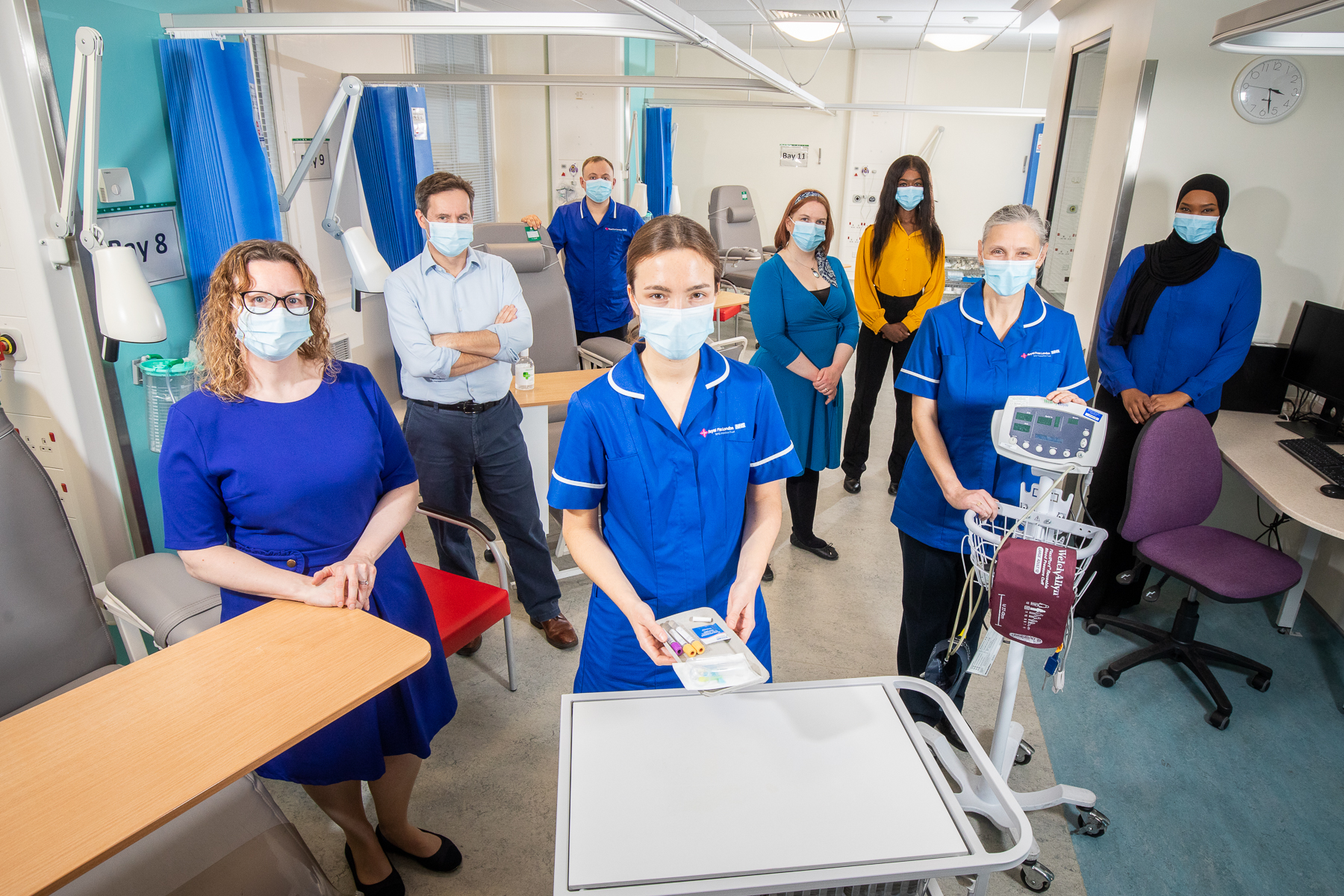
The Clinical Research Facility (CRF) at the Royal Free Hospital, used to develop ground-breaking new treatments for patients with a broad range of medical conditions, has been awarded £4.9 million in funding from the National Institute for Health Research (NIHR).
The CRF is a purpose-built clinical space designed to enable complex clinical studies including first-in-human drug trials and the development of medical devices and biomarkers. The money will be used to fund the specialist staff and equipment needed to expand the vital work of the CRF.
The facility is linked closely to the laboratory work being carried out in the UCL Institute of Immunity and Transplantation, based in the Pears Building, adjacent to the Royal Free Hospital. The proximity of the institute and the CRF means that new treatments can be developed seamlessly within the organisation.
The start up funding for the CRF was provided by the Royal Free Charity.
The Royal Free Hospital’s CRF is one of 28 facilities across England to have been awarded a total of £161million from the National Institute for Health Research (NIHR).
In assessing the Royal Free Hospital’s bid, the NIHR selection committee were impressed by ‘the quality and breadth of early translational and experimental medicine research studies, the comprehensive plans to support skills and workforce development and a clear demonstration of patient and public involvement and a commitment to equality, diversity and inclusion.’
Professor Tim Meyer, director of the CRF, said: “Our CRF is playing a crucial role in helping us to understand and treat a range of conditions including cardiovascular, renal and liver disease as well as rare diseases and cancer’’
“On behalf of the clinical research facility, I am absolutely delighted that NIHR has recognised the huge potential of Royal Free London to deliver an ambitious program of clinical research over the next five years.
“Not only will NIHR funding provide key infrastructure to support RFL investigators, but we will also become part of the national network of NIHR CRFs which have played such a critical role in developing new treatments for COVID-19 and will continue to transform healthcare in the future.”
Farhan Naim, director of research and development at the Royal Free London, said: “This is tremendous news for clinical research at this Trust and will ensure that our patients and staff have access to world-leading early phase and experimental medicines research. Excellence in clinical research is a key strategic aim for us and this NIHR recognition will take the Trust further towards cementing its status as a leading NHS research hospital. I’d like to thank all of our colleagues who worked so tirelessly to secure this prestigious award.”
Professor Derralynn Hughes, clinical director of research and development at the Royal Free London, said: “ This exciting news of NIHR funding for the CRF will bring important opportunities for staff and patients to participate in the development of new medicines for some of our the challenging conditions. The CRF will be key to accelerating out delivery of world class clinical research for the benefit of all of our patient populations."
Professor Lucy Chappell, chief executive of the NIHR and chief scientific adviser to the Department of Health and Social Care, said: “NIHR’s CRFs scheme has been a key force in translational research across England, helping to position the nation as internationally competitive in early stage clinical research.
“This new funding, a 43% increase, will allow the CRFs to continue to drive forward innovation in experimental medicine and support translation of exciting discoveries into new treatments for patients.”
 Translate
Translate
